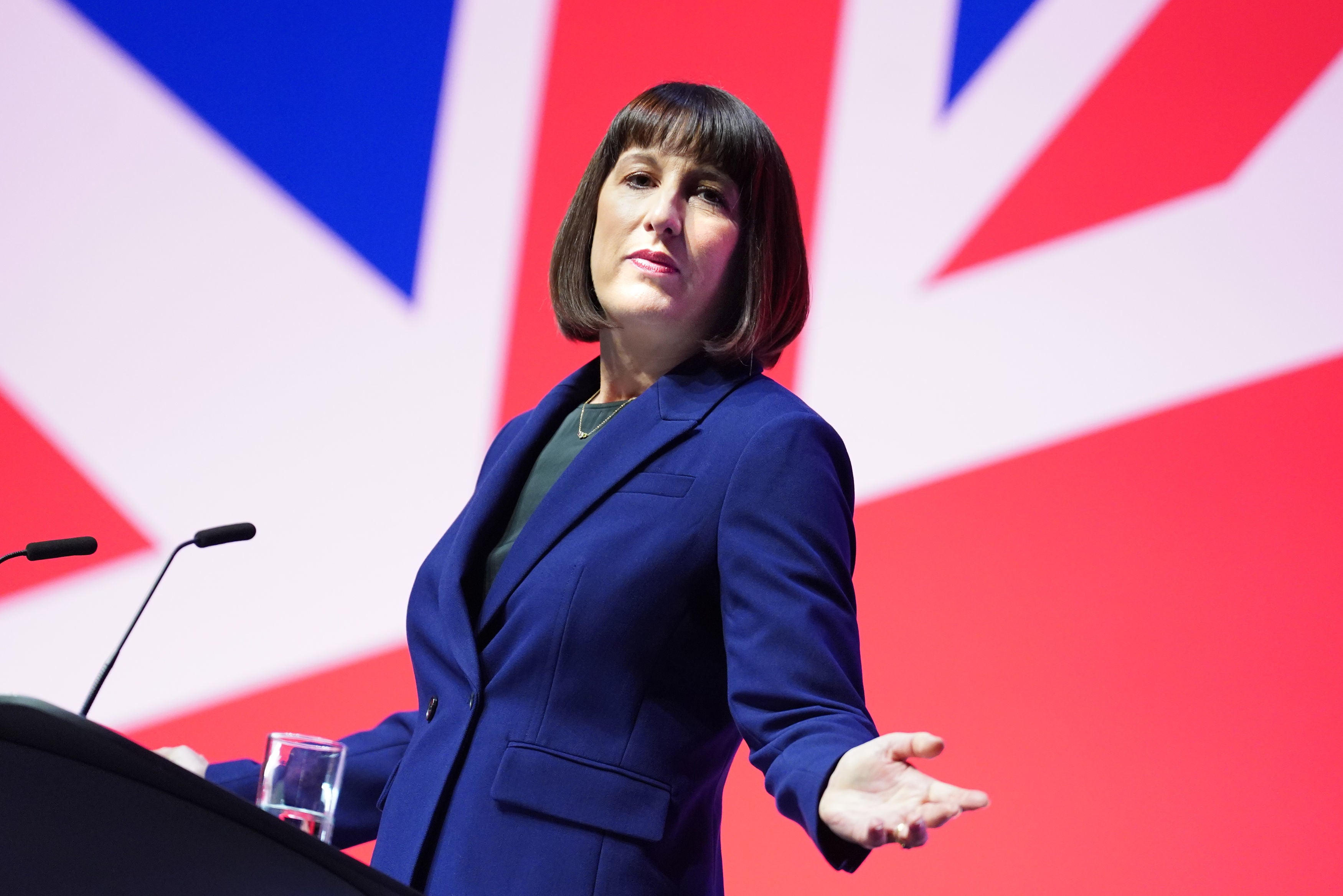Rachel Reeves’s plan for tax cuts is taking the voters for fools
Labour has had a good run attacking the Conservatives for hiking taxes, writes John Rentoul. But as a government in waiting, it needs to be honest about the economy – and abandon fantasy tax cuts and impossible spending pledges


Rachel Reeves, the shadow chancellor, is said to be considering a promise of income tax or national insurance cuts in Labour’s election manifesto.
This is the logical endpoint of her positioning of Labour as the low-tax party over the past 18 months – but it is pie-in-the-sky economics that takes the voters for fools.
Labour has had a good run of attacking the Conservatives, and Rishi Sunak personally, for putting up taxes. Keir Starmer and Reeves have made common cause with the fairytale believers of the Liz Truss wing of the Tory party in criticising the “heaviest tax burden for 70 years”. This is despite Labour’s support for the furlough scheme and the energy price support which gave rise to the need for higher taxes.
Public opinion has proved fickle on this subject. The voters strongly supported state intervention during the pandemic, and clamoured for more, and when world gas prices went up it was simply taken for granted that the government should protect everyone. When it came to paying for all this, however, the virtually unanimous view was that the bill should be sent to someone else. And cowardly politicians turned and fled.
Chief among them was Sunak himself, who abandoned his attempt to lecture people about the irresponsibility of expecting something for nothing in the early stages of the Tory leadership campaign against Truss. Since then he has started cutting personal taxes and hinted at more cuts to come.
The first cut, in national insurance contributions, will take effect this weekend, prompting Labour to launch an off-season attack during Christmas and the new year, complaining that not everyone would benefit straight away. “In a few days’ time, working people are expecting a tax cut that the Labour Party voted for,” said James Murray, shadow Treasury minister. But he pointed out that the government had said it thought that only “the majority” of employers “will be able to make the changes on time”.
This is sensible, defensive politics. If the government is going to cut personal taxes before the election, Labour cannot oppose it, so it might as well support it and complain that cuts are not being delivered quickly enough. There will be a further cut in the Budget on 6 March and almost certainly a final instalment in a second fiscal event, a pre-election autumn statement in late October or early November.
Starmer, Reeves and Murray will support both of them. They will take whatever tax cuts Jeremy Hunt can get past the Office for Budget Responsibility (OBR) as the baseline for their election manifesto.
Previously, I had assumed that the Labour manifesto would promise three specific tax rises to pay for its limited spending promises but otherwise stick to that baseline. Those three are by now well known: VAT on school fees, abolition of non-dom status and something complicated to do with private equity firms. These all fall under the heading of “sending the tax bill to someone else” and produce just enough revenue to pay for modest but credible pledges.
But now Reeves has been pushed further. She appears to be responding to the next Tory tax-cutting gambit. As Katy Balls, political editor of The Spectator, reported on Monday, Sunak is planning an election promise of a “big tax cut over several years” – his “inner circle are discussing unveiling a five-year tax-cutting plan”.
This is the kind of fantasy fiscal policy for which Sunak criticised Truss only months ago – not the full-strength market-meltdown recipe, maybe, but strong enough stuff. He knows, not least because the OBR has complained about it, that the Treasury’s official public spending plans for after the election are unsustainable.
Everyone knows that the kind of spending cuts implied by the plans are not politically possible, whichever party wins the election. Overall taxes cannot therefore be cut significantly.
So when Reeves lets it be known that she, too, is thinking about promising tax cuts in her manifesto, “to show that the party is on the side of opportunity and aspiration”, in The Times’s words, she is insulting the voter’s intelligence.
She may think she can cut personal taxes, so that people feel better off, while raising corporate taxation. But the scope even for that is limited. It may be possible to increase further windfall taxes on oil and gas companies, and corporation tax, having been put up to 25 per cent by Sunak and Hunt, could go up to the 28 per cent inherited from Labour in 2010. But that would destroy years of Starmer and Reeves’s patient pro-business rhetoric.
Both main parties, it seems, are in a conspiracy to deny fiscal reality, knowing that if they both offer imaginary tax cuts based on impossible spending cuts, neither will challenge the other.
Sunak’s inconsistency is disappointing but given the likelihood of a Labour government, Reeves’s pretence that she can offer both to cut taxes and to revive our backlogged public services may be more serious.






Join our commenting forum
Join thought-provoking conversations, follow other Independent readers and see their replies
0Comments